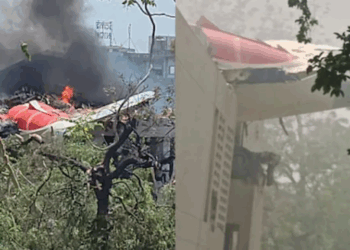Damascus, December 8, 2024 – Syrian rebels announced on state television on Sunday the ousting of President Bashar al-Assad, ending a 50-year family dynasty in a dramatic offensive. The development marks a pivotal moment in Syria’s history, raising concerns of potential instability in a Middle East already fraught with conflict.
The Syrian army command informed officers that Assad’s regime had ended, according to sources within the military. However, the army later stated that operations against “terrorist groups” were continuing in key areas, including Hama, Homs, and the Deraa countryside.
Two senior military officials reported that Assad fled Damascus for an undisclosed location earlier on Sunday. Rebel forces claimed to have entered the capital without encountering significant resistance. Crowds gathered in Damascus’s main square, chanting “Freedom” and celebrating the end of Assad family rule.
Rebels also announced the liberation of detainees from Sednaya prison, a notorious facility where thousands were held under Assad’s government.
The fall of Assad’s regime marks a major blow to regional allies Russia and Iran, while injecting further uncertainty into a Middle East already grappling with the ongoing Gaza conflict.
A Syrian Air flight departed Damascus airport as rebels reportedly seized the capital. Flight data showed the aircraft initially headed toward Assad’s coastal stronghold before abruptly turning and disappearing from radar. The fate of those on board remains unclear. Sources speculated that Assad may have perished in a possible crash or downing of the aircraft.
Hadi al-Bahra, leader of Syria’s main opposition abroad, declared Damascus “free of Bashar al-Assad,” signaling a turning point in Syria’s 13-year civil war, which has devastated cities, killed hundreds of thousands, and displaced millions.
Western governments face tough decisions on recognizing a new administration that may include Hayat Tahrir al-Sham (HTS), a powerful rebel group formerly affiliated with al-Qaeda. HTS, under leader Abu Mohammed al-Golani, has spearheaded the offensive and appears to seek an orderly transition, experts say.
“This transition must avoid the chaos that followed Saddam Hussein’s ousting in Iraq,” noted Joshua Landis, a Syria expert and Director of the Center for Middle East Studies at the University of Oklahoma. He emphasized the need for international cooperation to rebuild and ease sanctions.
Despite Golani’s efforts to distance HTS from its extremist past, fears remain over potential Islamist rule and reprisals. Regional powers like the UAE and Egypt, which see militant groups as a threat, may resist HTS’s growing influence in the post-Assad landscape.
Stabilizing Syria’s western regions will be critical for the nation’s future, as Syrians and the international community grapple with the fallout of this historic upheaval.








